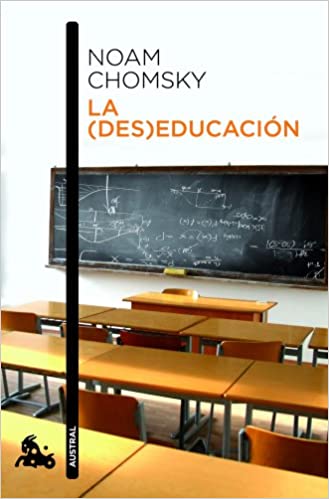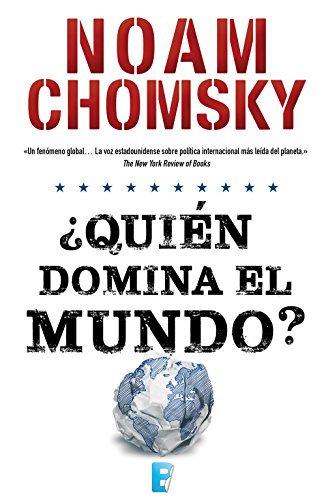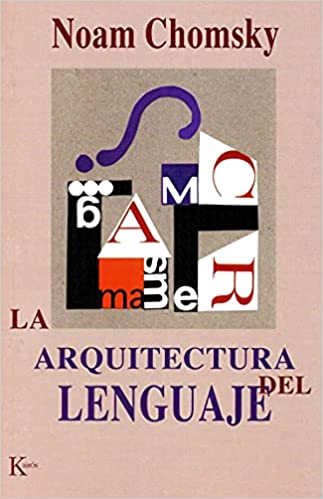I remember the impact of the intervention of Noam Chomsky in the current conflict with the region of Catalonia. More than anything, because you always expect from intellectuals a measured, calm intervention, analyzing the facts and the substance. But of course, it is so tempting these days to embrace a supposed libertarian warmth, even if it disguises a single selfish desire...
Because being a Catalan separatist is sold as an easy cause in the civilized world. It may be a expiation of so many sins in the face of true impairments of fundamental rights; chronic sociological and political neglect in other parts of the world; Interested resignations for indispensable balances…. Salon activism.
And of course, who else who less (among the pleiad of supposedly leftist personalities, but really well-off in this, at times, cynical world), lick their wounds of falsehood by showing themselves firm with the least real and most embarrassing cause of all the pseudo-revolutionary causes there are. .
And then a guy like José Mújica arrives, former president of Uruguay, truly detached from everything that involves self-righteousness and lukewarmness. false revolutionary leftists. Yes, José Mújica leaves the journalist on duty at the best-known Catalan pro-separatism channel speechless and tells him that the Catalan independence movement is simply selfishness. And that the movement is nothing democratic.
But come on, criticism aside, it cannot be ignored that Chomsky's moral stance on this issue is just an opportunistic lattice that we can all use at any given time, in the absence of certain real causes in which to involve our ethical principles.
Cut aside, then there is his work, a very extensive bibliography that, in many cases, gives us an enriching vision of the future of our days. And yes, he turns out to be a fully recommendable author in his tests close to a critical and even philosophical vision.
Top 3 Recommended Books by Noam Chomsky
Contemporary (un) education
I approached this book prompted by other similar readings that pointed to the educational system as a cancer for, precisely, many of the most gifted and creative students. It is true that others do arrive, study, obtain degrees and become useful men.
The question is those who fall by the wayside. If I could do IQ statistics without a degree, especially in the early levels where they are younger, we would surely be amazed. It is about the mania of organizing to the point of ecstasy, of structuring to the point of orgiasticity. And then those who set up the system remain very calm, like when they go to the bathroom, without considering many other more relevant aspects to promote learning, which is undoubtedly the essential will to learn and motivation as the driving force that activates it.
Without going into these aspects outlined, Chomsky underlines another essential aspect, the promotion of the critical, the introduction of that intellectual notion of the young individual willing to rethink everything. There is no dogma that a restless boy wants to assume because he does. And that is a tremendous burden. Noam Chomsky is recognized worldwide as one of the great intellectuals and educators of the 20th century. And yet, until now, his writings on the education and miseducation of citizens had not been collected in any book. In this, the great American linguist harshly criticizes our current educational system.
Faced with the idea that democratic values are taught in our schools, what really exists is a colonial teaching model designed primarily to train teachers whose intellectual dimension is devalued and is replaced by a complex of procedures and techniques; a model that prevents critical and independent thinking, that does not allow reasoning about what is hidden behind the explanations and that, for that very reason, fixes these explanations as the only possible ones. Teachers rarely ask students to analyze the political and social structures that inform their lives. Students are rarely urged to discover the truth for themselves.
In this book, Chomsky provides us with excellent tools to dismantle this type of teaching designed for the domestication of citizens: if educators reject the technocratic training that de-intellectualizes them to become authentic intellectuals who denounce hypocrisy, social injustices and human misery , they will get students to take on the challenge of broadening the horizons of democracy and citizenship and, together with them, they will work to build a less discriminatory, more democratic, less dehumanized and more just world.
Who rules the world?
It seems incredible that so many of us know, intuit or at least doubt and, on the contrary, the little room for maneuver we have. It's kind of like Big Brother, from Orwell or the happy world of Huxley, the new world, the new truth, or currently called, the post-truth. No matter how much Chomsky masterfully delves into the heart of the matter, awakening seems like an impossible mission.
The terrifying notion of an entire world people, united by globalization, could rise up demanding social justice must have been so scary to the powerful that they took it upon themselves to silence the voice. In an incisive and conscientious analysis of the present international situation, Chomsky argues that the United States, through its predominantly militaristic policies and its boundless devotion to maintaining a global empire, is risking a catastrophe that would destroy the common goods of the planet.
Drawing on a wide variety of examples, from the expanding drone assassination program to the threat of nuclear war, to the hotspots represented by the conflicts in Iraq, Iran, Afghanistan and Israel-Palestine, Chomsky offers unexpected insights and loaded with nuances about the operation of imperial power on an increasingly chaotic planet.
In passing, the author provides a brilliant study of how the elites of the United States have been increasingly isolating themselves in the face of any restrictions that democracy seeks to impose on their power. As the bulk of the population is driven into apathy - diverted towards consumerism or hatred of the vulnerable - corporations and the wealthy are increasingly allowed to do as they please.
The architecture of language
Tool, weapon, communication channel and also noise. Our essential way to transmit ideas, emotions, concepts, approaches, stories and other intellectual compositions made into verbs, also has its metaphysical consideration from the metalinguistic perspective. Because what we intend to communicate we can give disguised under what we say. Or, on the contrary, we can reveal the true intention never intended to be made explicit. The essential thing is grammar.
But even from the simple subject that studies words and the way of creating sentences, it already provides insights into the intentionality of language, even in its geographical vision. Languages are created based on the idiosyncrasies of their people. And Chomsky gives a good account of all this in a masterful book about our means of communication in essence.
His approach to the study of languages has been called "generative grammar" and it has revolutionized our understanding of human languages and other cognitive systems. In this book Chomsky reflects on the history of this "grammar" and integrates philosophical and conceptual questions with empirical investigations.
The lively and seductive style that Chomsky is admired for is enhanced in a highly engaging final discussion with distinguished university professors, covering linguistics, language acquisition, language theory, and the mind. In his generous answers to a wide variety of questions, Chomsky grapples with fundamental questions of the human condition. Thus, the book will interest both professional linguists and the general public.




4 comments on "The 3 best books by Noam Chomsky"